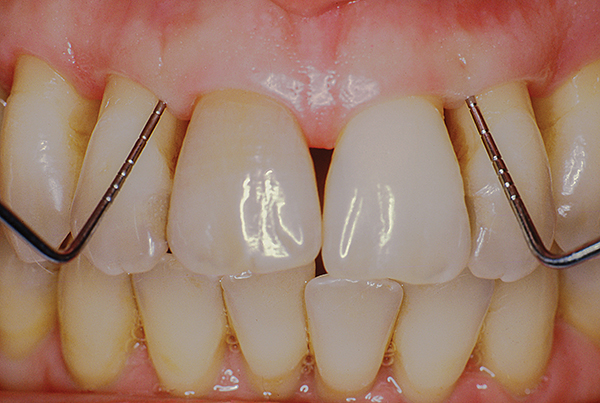
Open Flap Debridement (OFD)
Open flap debridement (OFD) is a surgical procedure used in periodontal therapy to treat advanced cases of gum disease (periodontitis). The goal of open flap debridement is to access and remove deep-seated calculus (tartar) and bacteria from below the gumline, facilitating better healing of the periodontal tissues.
Before recommending open flap debridement, a thorough examination is conducted to assess the extent of periodontal disease. This may involve measurements of pocket depths, X-rays, and other diagnostic tools.
Local anesthesia is administered to numb the affected area, ensuring the patient’s comfort during the procedure.
The dentist or periodontist makes an incision in the gum tissue, creating a “flap” that can be lifted to expose the tooth roots and the underlying bone. This allows better access to the affected areas.
Once the flap is raised, the dentist or dental hygienist can visually inspect and access the calculus deposits below the gumline. Specialized instruments are used to remove the calculus from the tooth surfaces and root surfaces.
Root planing follows calculus removal, involving the smoothing of the tooth’s root surfaces. This process helps prevent the recurrence of bacteria and promotes the reattachment of the gums to the teeth.
Any infected or damaged tissues are removed during the procedure to promote a healthier healing environment.
After the debridement is complete, the flap is repositioned and sutured back in place. Sutures help secure the flap during the initial stages of healing.
Patients are provided with post-operative care instructions, including guidelines for oral hygiene, pain management, and the use of any prescribed medications.
Follow-up appointments are scheduled to monitor the healing progress and assess the effectiveness of the treatment. Additional periodontal maintenance may be recommended to manage ongoing gum health.
Open flap debridement is often indicated for cases where deep cleaning procedures, such as scaling and root planing, may not be sufficient to address the severity of periodontal disease. The procedure allows for a more thorough removal of calculus and infected tissues, facilitating improved healing and reducing pocket depths.
It’s important for individuals undergoing open flap debridement to follow their dentist or periodontist’s post-operative care instructions and attend regular follow-up appointments for ongoing periodontal maintenance. Regular dental check-ups are crucial for the early detection and management of periodontal issues.
